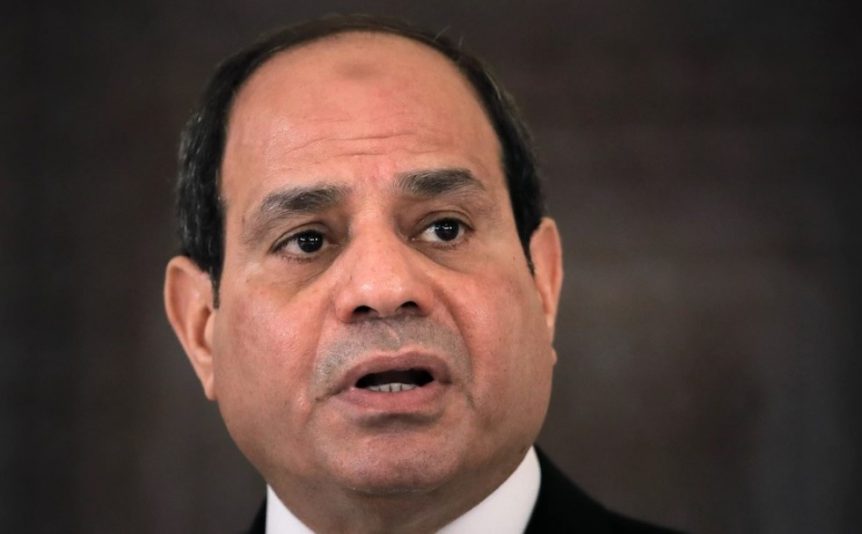
8 September, 2020
It’s official: In Egypt, you can now get 15 years in jail for a tweet
But last week, the government crossed a dangerous new threshold in its crackdown on peaceful dissent, one that all who care about the global struggle against authoritarianism should note and condemn.
On Tuesday, for the first time since their creation, Egypt’s special counterterrorism courts sentenced a prominent human rights activist to the maximum penalty under provisions of a draconian new cybercrime law: 15 years in prison for criticizing the Sissi regime. It is the longest sentence ever imposed against a human rights defender in Egypt. The man convicted was Bahey eldin Hassan, widely seen as the founder of the Egyptian human rights movement and one of the country’s most well-respected human rights defenders. (He currently lives in exile.)
So what was the heinous conduct for which he was found guilty? Nothing more than public comments, made on Twitter and at U.N. human rights meetings, noting the failure of Egypt’s justice system to hold state officials accountable for widespread killings, torture and disappearances since Sissi came to power.
Hassan was prosecuted under both the penal code and a draconian new cybercrimes law that has been condemned by media and Internet freedom campaigners as a severe obstacle to freedom of expression. The law criminalizes insulting state institutions, such as the judiciary, and includes a provision outlawing the dissemination of “fake news” — a term that has become popular with autocrats around the world since the emergence of Donald Trump as a political force in the United States. Hassan’s comments were characterized as “insulting the judiciary,” and his criticism of the regime’s failure to hold anyone accountable for the 2016 disappearance, brutal torture and killing of Italian graduate student Giulio Regeni was found to violate the provision against “spreading fake news.”
Despite living abroad since 2014, Hassan continues to lead international campaigns protesting the lawlessness and brutality of the Sissi government, meeting regularly with political leaders and senior U.N. officials. Combined with his mobilization of Egyptians inside and outside the country in the cause of justice, human rights and the rule of law, this has been a constant irritant to Sissi. The extremity of the sentence levied against him is a clear message.
Criminalizing peaceful criticism of the government is already outrage enough. But bringing Hassan before the counterterrorism court, rather than the ordinary penal court, is a clear signal from the Sissi regime that it is revving up its efforts to discredit and intimidate the human rights movement as a whole by publicly linking it to terrorism.
Judges in the special terrorism circuit are handpicked for their willingness to sentence Sissi’s political opponents despite the lack of any credible evidence of criminal wrongdoing. In Hassan’s case, the court’s judgment condemned him for inciting violence and vandalism, despite the fact that the prosecution neither alleged nor submitted evidence to support such claims. The judge simply fabricated these inflammatory charges in order to defame Hassan and the work of his organization and other human rights activists.
Sissi’s strategy — to discredit criticism from local and international human rights organizations by smearing them with charges of terrorism — is not new. But the judgment against Hassan is an ominous escalation. Without widespread and sustained international protest against this measure, many more human rights defenders, journalists and nonviolent government critics in Egypt will be vulnerable to a similar fate. The government surely hopes that the threat of a long prison term will make Egyptians discontented with Sissi’s misrule think twice before speaking out about it.
Egypt is a large and influential country in the Arab region and beyond that carries weight at the United Nations, where it is currently co-convener of the biennial review of the U.N. Global Counterterrorism Strategy. There are four pillars in this strategy, and one of them requires governments to uphold respect for human rights and the rule of law while countering terrorism. Now Egypt has sentenced Hassan to 15 years in prison for standing up for precisely these values — demonstrating that the regime in Cairo has only contempt for this obligation. Its behavior has contributed to an endless war on terrorism at home and sets a dangerous example that many governments are ready to follow.
Source: The Washington Post



